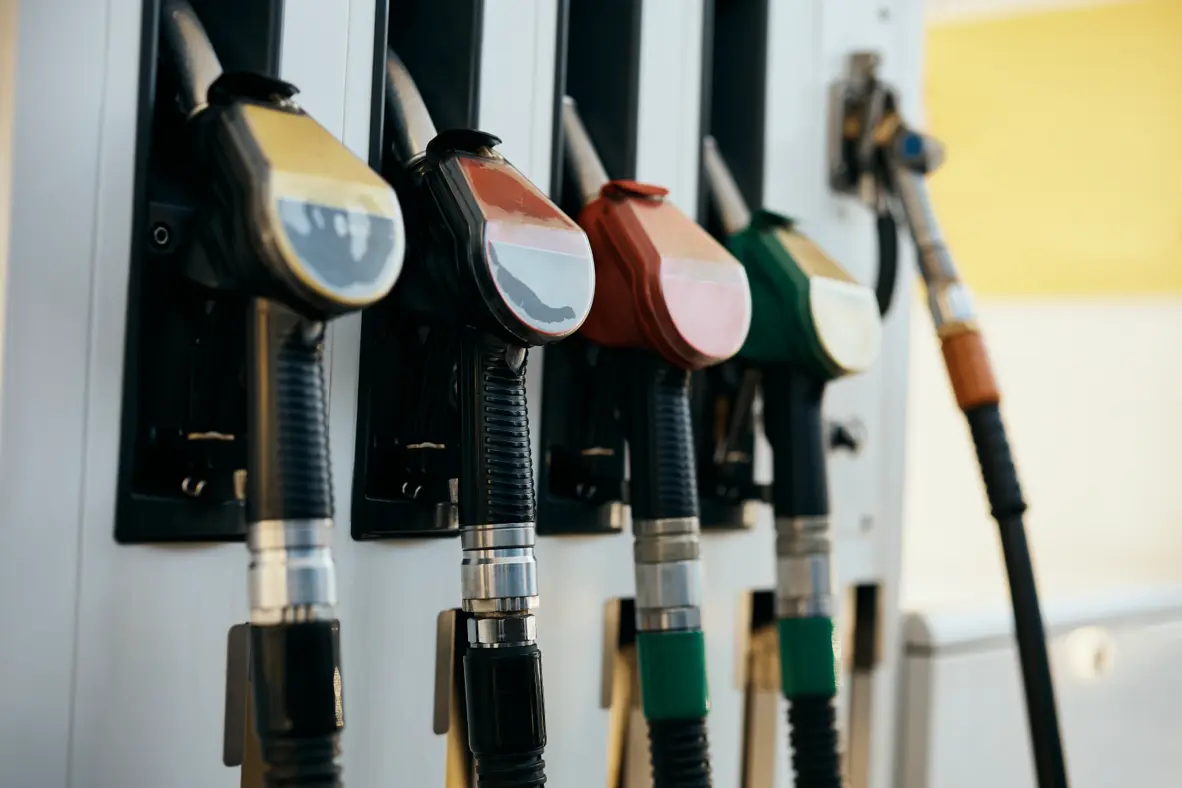Fuel is by far the most significant cost for fleets, and with today’s increasingly volatile fuel economy, there’s never been a more critical time to explore ways to implement better fuel-efficient strategies for your fleet.
One of the biggest challenges fleet managers face is how to reduce growing fuel costs without impacting other areas of their fleet operations. While many businesses have considered expanding their fleet with electric vehicles, this remains prohibitively expensive for many. At present, traditional internal combustion engine (ICE) vehicles still dominate fleet operations.
Although the adoption of electric vehicles is expected to become the norm within the next few years, rising fuel costs remain a key concern affecting the majority of fleets. Now more than ever, it’s crucial for fleet managers to uncover ways to reduce costs while increasing productivity. This is where telematics technology can play a pivotal role.
How Telematics Helps Reduce Fuel Costs
Telematics technology provides a range of valuable insights to help streamline processes and reduce costs. From analysing driver behaviour to monitoring vehicle maintenance, telematics offers a comprehensive suite of tools to improve fleet efficiency and reduce fuel expenses. Here’s how telematics can help:
1. Monitoring Driver Behaviour
Driver behaviour is one of the most significant factors impacting fuel consumption. Poor driving habits such as excessive idling, rapid acceleration, harsh braking, and aggressive cornering can lead to increased fuel usage, directly affecting your fuel costs.
Telematics systems enable fleet managers to monitor these behaviours in real time. With detailed reports and driver scores, fleet managers can identify drivers who consistently exhibit poor habits. Alerts can be set to notify managers of specific behaviours, allowing immediate corrective actions to be taken.
By using this data, fleet managers can implement targeted driver training programmes to encourage safer and more fuel-efficient driving practices. Incentives can also be introduced to reward drivers who demonstrate improvements, fostering a culture of accountability and efficiency.
2. Tracking Fuel Usage
Telematics provides a detailed view of fuel usage across your fleet. By remotely accessing vehicle data, fleet managers can track mileage, monitor unauthorised journeys, and identify inefficient routes.
These insights allow businesses to address anomalies and inefficiencies in their fleet operations. For example, if certain drivers take frequent detours or if specific vehicles consume more fuel than others, fleet managers can investigate the root causes and make necessary adjustments.
3. Effective Maintenance Management
Vehicles in poor condition are inherently less fuel-efficient. Regular wear and tear, exacerbated by aggressive driving behaviours, can lead to increased fuel consumption and maintenance costs.
Telematics enables proactive maintenance management by allowing fleet managers to schedule preventative maintenance based on usage and mileage. Alerts can be set for routine servicing, ensuring that vehicles remain in optimal condition. This reduces unexpected breakdowns and excessive fuel usage caused by poorly maintained vehicles.
4. Route Optimisation
Efficient routing is critical to minimising fuel costs. GPS-based telematics solutions provide real-time data on traffic conditions, allowing fleet managers to plan and adjust routes dynamically. By avoiding congested areas and reducing idle time, fleets can save significant amounts of fuel.
Telematics also allows fleet managers to track vehicle locations and assign jobs based on proximity, maximising productivity while minimising unnecessary mileage. These measures contribute to more streamlined operations and reduced fuel consumption.
Telematics and Long-Term Cost Savings
Implementing telematics not only addresses immediate concerns like reducing fuel costs but also offers long-term benefits for fleet operations. Here are a few additional ways telematics can help:
1. Analysing Key Metrics
Telematics provides detailed reports on key metrics such as fuel efficiency, maintenance costs, and driver performance. By analysing these metrics, fleet managers can identify patterns and trends that impact operational efficiency. This data-driven approach allows for better decision-making and continuous improvement.
2. Enhancing Fleet Safety
Safer driving behaviours directly correlate with reduced fuel consumption. By monitoring and addressing risky behaviours, telematics promotes a safer driving culture. This reduces accidents, minimises vehicle downtime, and ensures compliance with safety regulations.
3. Reducing Environmental Impact
Lower fuel consumption not only saves money but also reduces the environmental impact of fleet operations. Telematics supports sustainability initiatives by helping businesses track and lower their carbon footprint, aligning with corporate social responsibility goals.
Real-World Results with Telematics
According to a study by McKinsey & Company, fleets using telematics systems report an average fuel savings of 10-15%.
In another example, a case study from Verizon Connect showed that implementing telematics helped a logistics company reduce fuel costs by 18% within the first year.
These statistics highlight the tangible benefits of adopting telematics solutions in fleet management.
How Prolius Fleet’s Telematics Solution Can Help
Prolius Fleet offers a fully integrated telematics solution within a comprehensive fleet management platform. Designed to transform and optimise fleet operations, our solution uses real-time data to provide actionable insights that help reduce fuel costs and improve overall efficiency.
With Prolius Fleet, you can:
- Monitor driver behaviour and implement targeted training programmes.
- Track and analyse fuel usage to identify inefficiencies.
- Schedule preventative maintenance to minimise downtime.
- Optimise routes with GPS and real-time traffic data.
By leveraging telematics, Prolius Fleet empowers businesses to make informed decisions and achieve sustainable cost savings.
Conclusion
Reducing fuel costs is one of the most significant challenges for fleet managers, but with the right tools and strategies, it is achievable. Telematics offers a comprehensive solution to monitor, analyse, and optimise every aspect of fleet operations. From improving driver behaviour to ensuring vehicles are well-maintained and routes are efficient, telematics provides the insights needed to reduce costs and enhance productivity.
Get in Touch
Discover how Prolius Fleet’s telematics solution can transform your fleet operations. Book a free demo today and take the first step towards smarter, more cost-effective fleet management.
